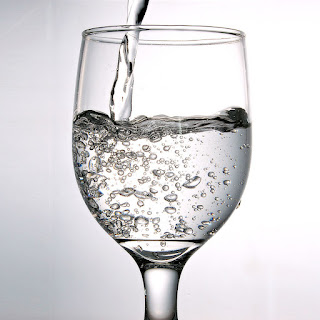Generally, water can be ignored until you have somewhat mastered the other hot and especially the cold-side of brewing. Adjusting your water can turn a good beer, into a great beer. This is geared to All Grain brewing, generally extract brewers will not need to worry too much about water.
Water Source
The first thing a brewer needs to figure out is where their water is coming from. Talk to the person who pays your water bill and navigate to that water companies website. A lot of water treatment companies will post a water analysis which details the low, median, and high ranges of different minerals in the water. I live in Montgomery County, MD and my water company Washington Suburban Sanitary Commission (WSSC) posts yearly tap water analysis. If you get your water from a well, or your water company does not provide you with the details (if its not online try to call), you may need to send a sample away for testing with a company like Ward Labs (W5).Additional note: If your water company treats your water with chlorine, I recommend using campden tables to treat your water at 1 tablet per 20 gallons of water.
 |
| (My water originates from the Potomac River, which looks like this as it gets close to D.C.) |
What to Look for:
I recommend you read John Palmer's Chapter 15 from How To Brew on Water for more information. Below are the minerals and my water sources average values which I use to plan my water adjustments.Calcium (Ca) - 38ppm
Magnesium (Mg) - 9ppm
Sodium (Na) - 21ppm
Chloride (Cl) - 41ppm
Sulfate (SO4) - 40ppm
Hardness/Alkalinity - Alkalinity (CaCO3) 82ppm
Why Care About It?
Having the correct chemical makeup in your water will determine your mash pH. Having an ideal mash pH will help insure full conversion in your mash. Additionally, higher/lower levels of the different minerals will have an impact on the flavor of your beer, especially if you are trying to replicate a classic style. I wouldn't be able to make a light lager, which needs to be low in minerals, with my water without the bitterness coming out to harsh.How to Make Adjustments
Since, I don't have a firm chemical grasp on how all these minerals work with each other in the mash, I choose to use the EZ Brew Water Caclulator. The Calculator takes my mineral concentrations above and allows me to input other salt additions to raise/lower my mash pH while also telling me my total mineral concentrations for my water. To lower the mash pH you use Gypsum - CaSO4, Calcium Chloride - CaCL2, Epsom Salt - MgSO4, or lactic acid in the form of acidulated malt, or liquid lactic acid. To raise the mash pH you can use Slaked Lime - Ca(OH)2, Baking Soda - NaHCO3, or Chalk - CaCO3 (note chalk will not dissolve in water and will need to be added to the mash)Most of the time, with my water, I am trying to lower the pH to get it into the desired range based on the EZ Brew Water Calculator. If I am brewing a pale ale or IPA I am going to use some gypsum to bring down the pH and accentuate the bitterness in the beers. If I am brewing something lighter, like a blonde I may use some Calcuim Chloride. If I think too much of a salt addition is necessary, I will then turn to acid malt to get me where I need to be. I plan to brew a Czech Pilsner here soon, and I think I am going to need to cut my tap water with some RO water to get it soft enough.
So for any water guru's out there...let me know if I am doing something glaringly wrong with my water adjustments in my recipes! I am currently just going by taste and taking good notes, and unfortunately I do not have any pH testing equipment, so I am really trusting that spreadhseet - for better or worse.
For More Understanding...
John Palmer's How to Brew - Chapter 15 - explains each mineral, their recommend rangesAJ DeLange - Local (DC Area) brewing water legend has a ton of good info hosted here
Brewing Networks Brewstrong - Water Shows - about 5 hours of audio on the subject (may contain some language)
Water - New book by Brewer's Publications coming out soon
The Mad Fermentationist's Blog Post on Water - Does a good job regarding recommend ppm mineral values
Brukaiser - Especially some of his documents like pH Targets

0 comments:
Post a Comment